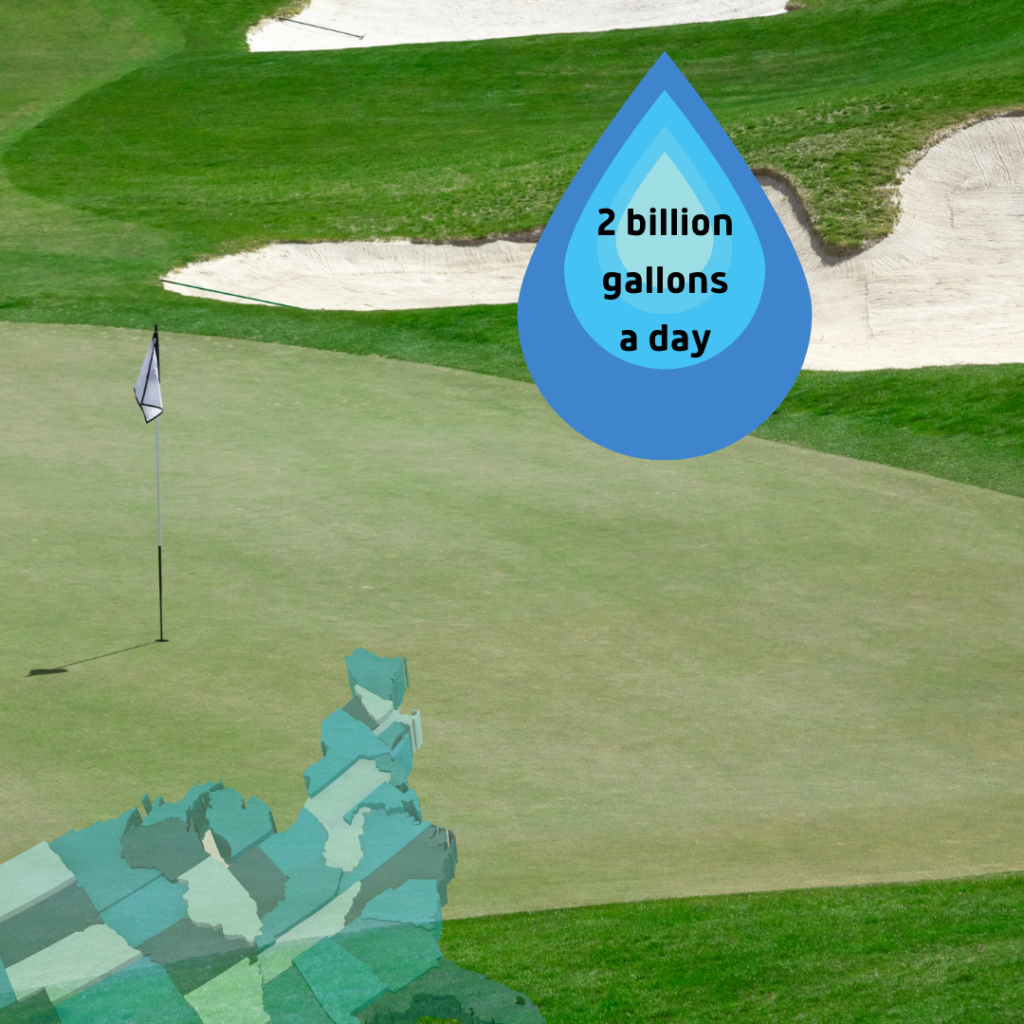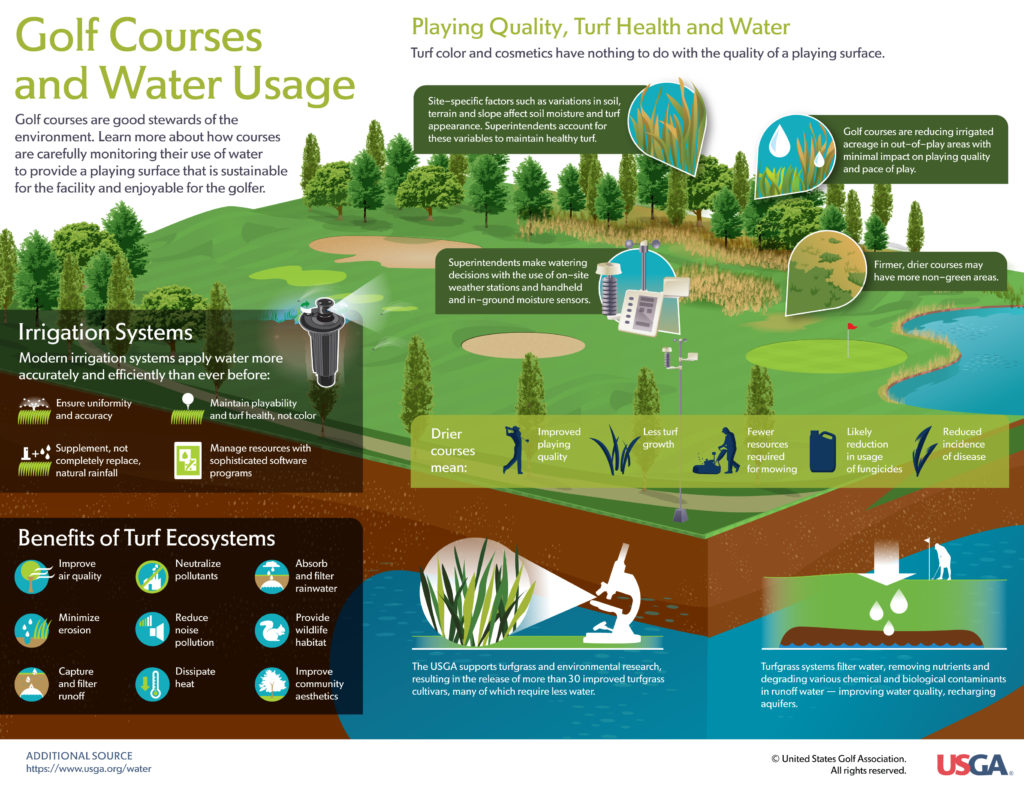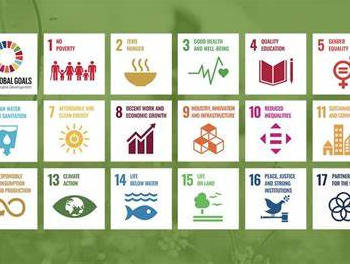|
|
Golf is a beautiful sport filled with sportsmanship, etiquette, history, well-dressed athletes, and beautiful landscapes. When it comes to sustainability…. where does golf fit into the puzzle?
I’ve been playing a lot of golf lately. It’s nice to get out on the course after a long day navigating the virtual college experience. Golf is such a relaxing sport for millions, and it can teach you about your mind as much as your swing.
But I’m not here to talk about my swing or score; here at Sustainable Review we are more interested in talking about sustainability in golf, if there is any, and what opportunities or threats exist.
Let’s breakdown the environmental impact of golf courses, and recommendations for the future.
Busy? Try the speed read.
The scoop: Golf is still growing, but it needs to incorporate sustainable practices to keep trending up.
Why it matters: Golf uses 2 billion gallons of water every day, and makes up over a million acres of land in the US alone.
Our recommendations:
- Invest in new technologies that conserve freshwater.
- Take advantage of regenerative and eco-friendly management practices like limiting the use of pesticides, encouraging the growth of wild plants off the fairway, or enacting policies that treat wildlife responsibly.
Bottom line: As a major outdoor sport, golf has a serious opportunity here to capture the hearts of young athletes. It will be certainly be a challenge, but sustainability and golf can work together very well.
Dig deeper → 2 min
Big picture
Golf is still growing, but it needs to incorporate sustainable practices to keep trending up.
Despite its rich history, golf is an $84 billion industry that’s still growing every year.
According to the National Golf Association, around 33.5 million U.S. golfers came out to play in 2018. That number was up from 30 million in 2014. That’s a lot of people. As the #1 outdoor pay-to-play sport in the world, golf has a serious impact on the surrounding environment.

Why it matters
Golf uses scarce resources.
Golf courses require enormous amounts of freshwater, pesticides, fertilizers, and other pollutants. It also requires a lot of land considering it’s solely intended for recreation. There are an estimated 1,504,210 acres of maintained turfgrass (greens, tees, fairways, rough) on golf facilities in the U.S (source:USGA). These combined factors affect local ecosystems, communities, and wildlife.
Downstream challenges from golf courses not only disturb local ecosystems, but towns and cities pour critical resources into these multi-million dollar clubs and facilities. These areas face deeper challenges with U.S. golf courses absorbing around 2 billion gallons of water every day. Water is becoming increasingly valuable, some are even calling it the next oil.

For golf courses to stick around, here are some recommendations:
- Invest in new technologies that conserve freshwater.
- Take advantage of regenerative and eco-friendly management practices like limiting the use of pesticides, encouraging the growth of wild plants off the fairway, or enacting policies that treat wildlife responsibly.
Golf is already taking action: The USGA now guides golf courses with environmental plans, and Audubon International offers a cooperative sanctuary program for golf courses interested in protecting natural habitats around their facility.
Bottom line
As a major outdoor sport, golf has an opportunity to blaze the trail.
As a major outdoor sport, golf has a serious opportunity here to capture the hearts of young athletes. As much as it will be challenge, golf and sustainability can work together very well.
There are enough tools & resources to renovate a beautiful, fun and challenging course that is also environmentally functional in a cost-effective way.
New construction for golf needs to consider local wildlife, natural resources and the surrounding environment going forward. Where there’s a will, there’s a way.













No Comments